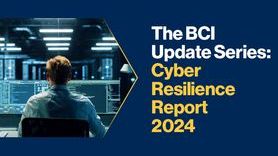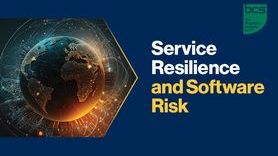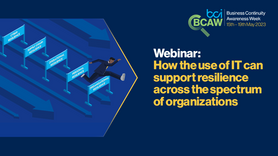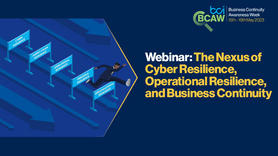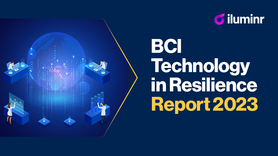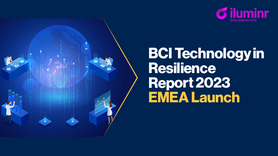Staying resilient in 2025: ESAs warn of rising cyber attacks and global instability
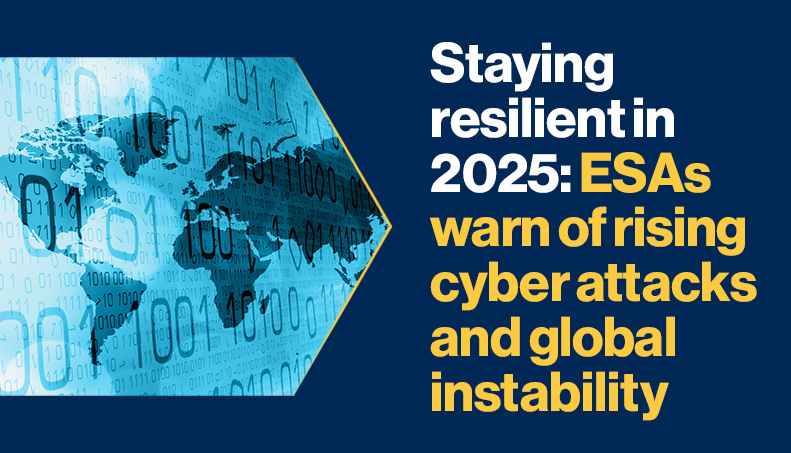
On 31st March, the three European Supervisory Authorities (ESAs)—EBA, EIOPA and ESMA, published their Spring 2025 Joint Committee update on risks and vulnerabilities in the EU financial system [1], warning of a significant risk to financial stability in the face of growing geopolitical tensions and cyber-attacks.
With technology constantly evolving, cyber-attacks are unsurprisingly on the rise, but so are geopolitical tensions, which have become as much of a risk according to findings in the BCI Horizon Scan Report 2024 [2]. In fact, both global conflicts and cyber-attacks were among the top five reasons for organizations activating their crisis plans in 2024 [3].
Geopolitical tensions significantly impact financial stability; conflicts, trade wars, and political instability can all lead to volatility in currency markets, disruptions to supply chains, and fluctuations in commodity prices.
BCI findings [2] cite the severe knock-on effects on global supply chains, cyber-security, company balance sheets, and more amid a super election year, which saw civil unrest in some regions and cross-border conflicts in others. To mitigate these risks, organizations must continue to strengthen their supply chain strategies to ensure agile responses to unexpected events.
Cyber disruption is fueled by technological development
Financial gain is one of the main drivers for cyber-attacks, data breaches and ransomware attacks, undermining the security of critical infrastructures and disrupting the broader economy. The BCI Horizon Scan Report [2], ranked fraud at the top of the list for the most frequent and impactful disruptions in 2024 and a report by PwC ranked procurement fraud (a sub-type of financial fraud) as the third greatest cause of financial disruption for that same year [4].
Cyber criminals are taking advantage of new technologies, and the alarming rise of attacks and financial fraud globally is largely fueled by this [5]. Findings from the BCI Horizon Scan Report showed that 74.5% of organizations had experienced more cyber-attack attempts, particularly in phishing and credential harvesting, which was driven by AI.
With these findings in mind, it's no surprise that ESAs are calling for stronger cyber resilience for financial institutions, which are a popular target for cyber criminals; according to figures from the banking industry, con artists steal more than £3m a day[6].
Being prepared...
Organizations should continue to strive for robust data governance, critically assess evolving technology, such as AI solutions and their compliance with them, e.g., the AI Act, and implement digital regulatory frameworks such as the NIS2 and Digital Operational Resilience Act (DORA) [2].
The growing sophistication and frequency of cyber threats requires enhanced cybersecurity measures and employee training to protect sensitive information. Research [3] shows the importance of the human element when building resilience: 84.4% of respondents from the BCI Crisis Management Report 2024 say that investment will be directed to training and exercising in 2025. If you’ve not yet started, use the report to benchmark your organization’s practices and gain valuable insights into crisis management.
Also the rising risks of geopolitical instability, including trade disruptions, regional conflicts, and civil unrest, highlight the need for forward-looking strategies. Institutions should engage in horizon scanning to anticipate emerging threats and opportunities, enabling proactive decision-making. Building resilient supply chains and operational frameworks that can withstand unexpected shocks or political unrest is essential for maintaining resilience.
[1] The ESAs call for vigilance amid rising geopolitical and cyber risks | European Banking Authority
[2] BCI Horizon Scan Report 2024
[3] BCI Crisis Management Report 2024
[4] Global Economic Crime Survey 2024 | PwC
[5] Technology boosting global financial crime, INTERPOL warns | World Economic Forum
[6] Fraudsters steal more than £3m a day as cases rise - BBC News











